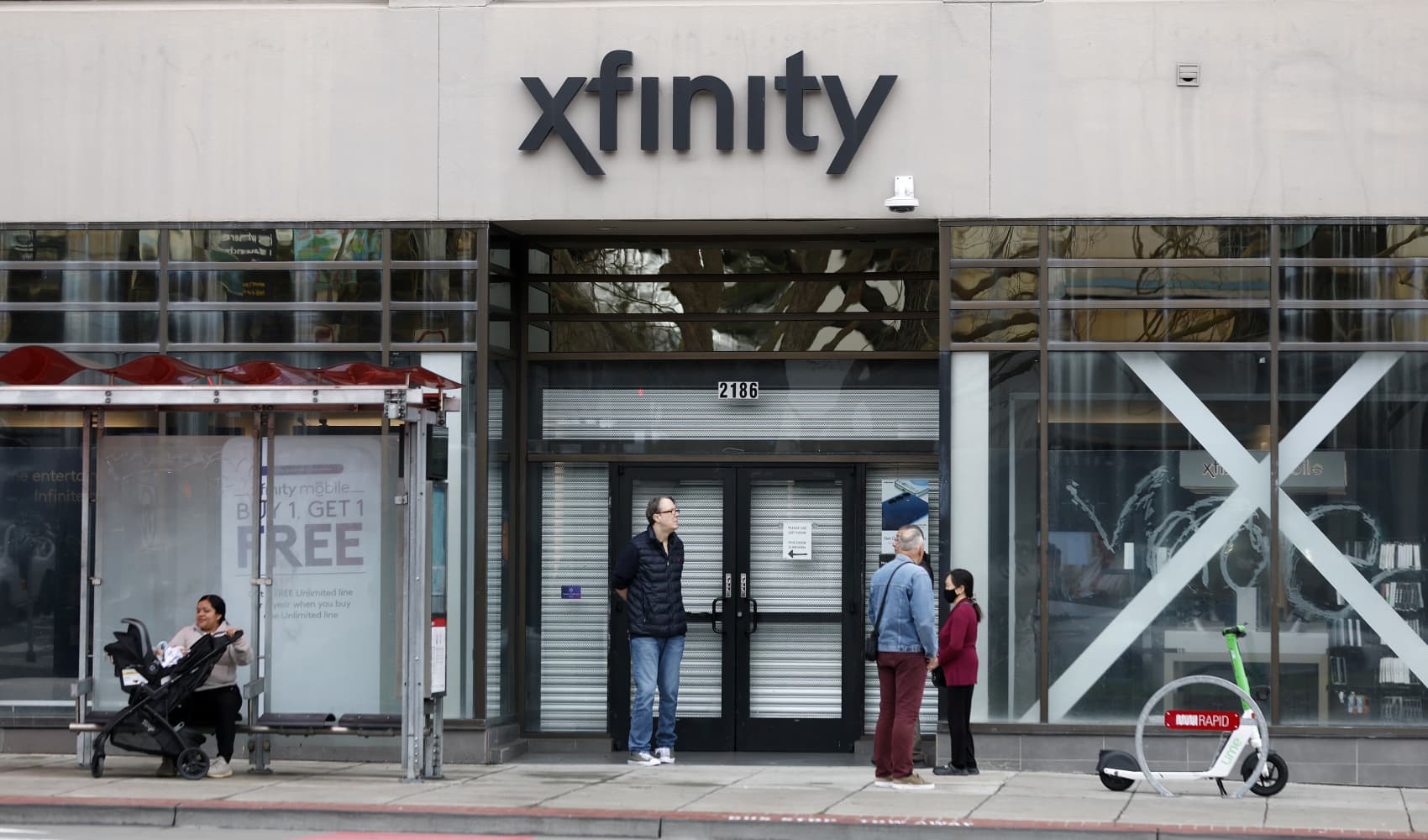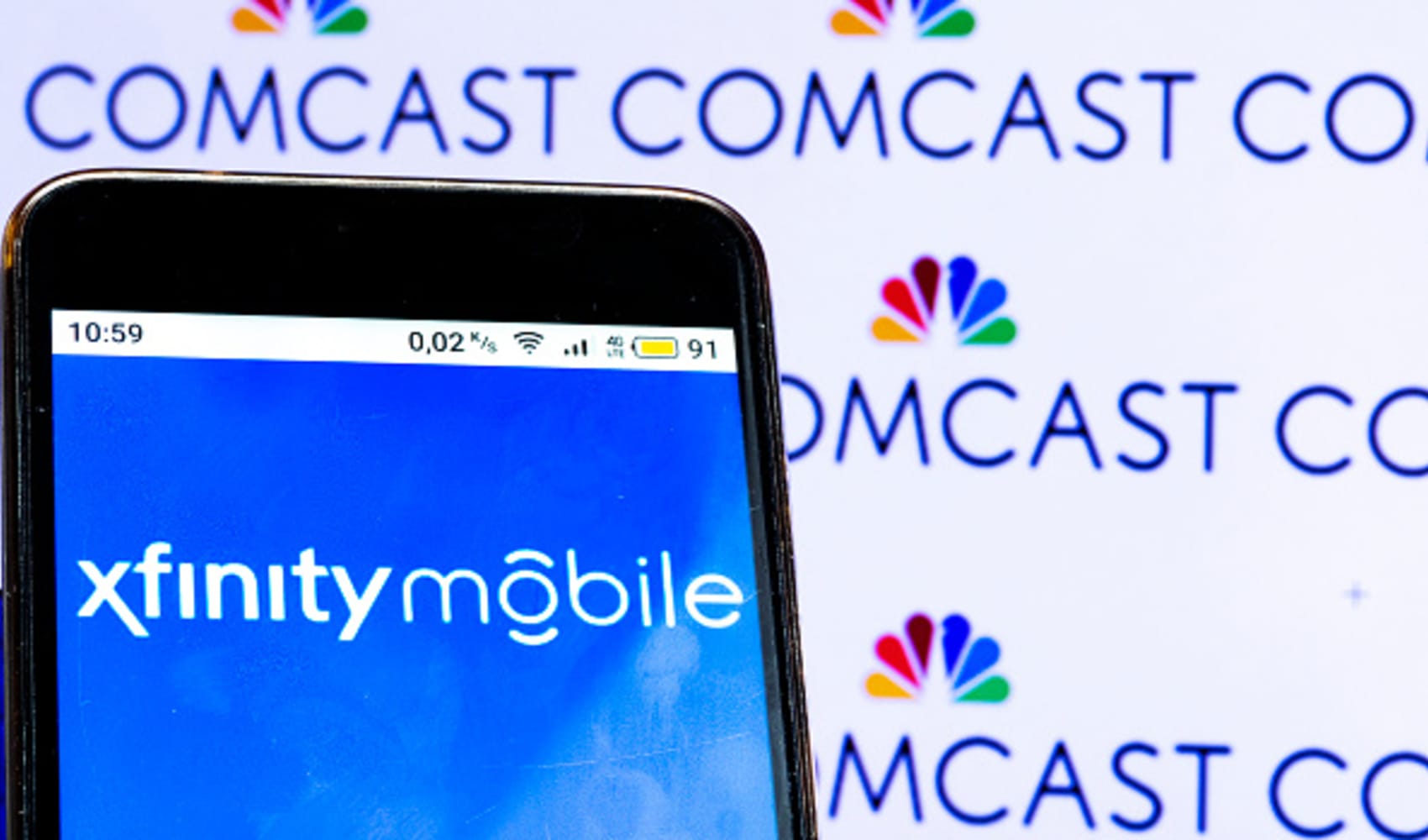Cable Companies & Mobile: Why It's Their Next Big Thing
Cable's Comeback: How Comcast & Charter are Winning the Mobile Game
Introduction: Beyond Broadband - Cable's Mobile Revolution
Remember when cable companies were *just* about cable? Seemed like a lifetime ago, right? Now, giants like Comcast and Charter Communications are making serious waves in the mobile world. Less than a decade after diving into the wireless business, it's become a major financial driver for them. But how did they pull this off, and why is it such a big deal? Let’s dive in and explore how these companies are reshaping the mobile landscape.
The Underdog Story: Cable's Unexpected Wireless Success
For a long time, cable companies were primarily focused on broadband and TV services. Entering the competitive mobile market seemed like a huge gamble. But, nearly half of all wireless line additions last year came from cable operators, according to data from MoffettNathanson. That's a staggering figure! Think of it like this: they're not just players in the game anymore; they're changing the rules.
Why Mobile? The Strategic Shift
So, what sparked this shift? Was it just a whim, or is there a deeper strategy at play? Turns out, it's all about expanding their reach and solidifying customer loyalty. It's like adding another layer to their service offering, making it harder for customers to switch providers.
H3: Retention, Retention, Retention
For years, the cable industry's foray into wireless has been viewed as a retention tool. Think of it as a "sticky" service. Bundling mobile with broadband and TV creates a more comprehensive package, discouraging customers from jumping ship. It’s far easier to stay with a company offering all of your needs in one place.
H3: Financial Windfall: More Than Just a Retention Play
The mobile segment has become a significant financial driver. It's not just about keeping existing customers happy; it's about attracting new ones and generating additional revenue streams. Cable companies are increasingly calling on mobile for their next big opportunity, expanding their reach and solidifying their position in the communications industry. How? We'll get to that!
Bundling is King: The Power of the Package Deal
The key to cable's mobile success lies in bundling. Offering a package deal of internet, TV, and mobile services at a competitive price is a major draw for consumers. Think of it as a one-stop shop for all your communication needs.
H3: The Competitive Edge: Price and Convenience
These bundles often come with significant discounts, making them more attractive than standalone mobile plans from traditional carriers like Verizon or AT&T. Plus, the convenience of managing all your services through a single provider is a major bonus. Who wouldn’t want to simplify their life?
The MVNO Advantage: Riding on Existing Networks
One of the reasons cable companies have been able to enter the mobile market relatively quickly is through Mobile Virtual Network Operator (MVNO) agreements. But what does that even mean?
H3: Leveraging Existing Infrastructure
Essentially, they lease network capacity from existing mobile carriers (like Verizon). This allows them to offer mobile services without having to invest billions of dollars in building their own network infrastructure. It's like renting an apartment instead of building a house.
Xfinity Mobile and Spectrum Mobile: Leading the Charge
Comcast's Xfinity Mobile and Charter's Spectrum Mobile are prime examples of cable companies that have successfully leveraged the MVNO model. They've become major players in the mobile market, attracting millions of subscribers.
Investor Skepticism: Overlooking the Mobile Potential?
Interestingly, investors haven't always been as enthusiastic about cable's mobile ventures. Why? Industry executives and analysts told CNBC that investors have largely shrugged at the strides made in mobile, likely due to the intense focus on broadband. But, that might be a shortsighted view.
H3: The Long Game: Mobile's Future Impact
While broadband remains a core business, the mobile segment has the potential to become an increasingly important source of revenue and growth in the long run. It's about diversifying their portfolio and preparing for the future of connectivity.
The 5G Factor: What's Next for Cable Mobile?
The rollout of 5G technology is poised to further disrupt the mobile landscape. How will cable companies capitalize on this opportunity?
H3: Faster Speeds, New Possibilities
5G offers significantly faster speeds and lower latency compared to previous generations of mobile technology. This opens up new possibilities for cable companies, such as offering more advanced mobile services and competing more effectively with traditional carriers.
Beyond the Bundle: Innovation and New Services
To truly thrive in the mobile market, cable companies need to go beyond just offering bundled plans. They need to innovate and develop new services that cater to the evolving needs of mobile users.
H3: Content and Entertainment: A Natural Synergy
One area where cable companies have a natural advantage is in content and entertainment. They can leverage their existing content libraries to offer exclusive mobile streaming services and create differentiated experiences for their subscribers.
Challenges Ahead: Competition and Regulation
Despite their success, cable companies face a number of challenges in the mobile market. Competition from traditional carriers is fierce, and regulatory issues could impact their ability to operate effectively.
H3: Navigating the Regulatory Landscape
Staying on top of regulatory changes and advocating for policies that promote competition and innovation is crucial for cable companies to thrive in the long run. It is an ever-changing environment, and they need to stay agile.
The Consumer Perspective: What Does This Mean for You?
Ultimately, cable companies' foray into the mobile market is good news for consumers. More competition means more choices, lower prices, and better service. But what should you look for when choosing a mobile provider?
H3: Making the Right Choice: Price, Coverage, and Features
Consider factors such as price, network coverage, data allowances, and available features when evaluating mobile plans from cable companies and traditional carriers. It's all about finding the best fit for your individual needs.
The Future of Connectivity: A Convergence of Services
The lines between cable, internet, and mobile services are becoming increasingly blurred. We're moving towards a future where all these services are seamlessly integrated into a single, unified experience. Cable companies are playing a key role in shaping this future.
Conclusion: Cable's Mobile Ascent - A Force to Be Reckoned With
Cable companies like Comcast and Charter are no longer just broadband providers. They've successfully carved out a significant share of the mobile market, thanks to strategic bundling, MVNO agreements, and a growing focus on innovation. While challenges remain, their mobile ascent is a testament to their adaptability and a sign of things to come. They've transformed from underdogs to serious contenders in the mobile arena. Keep an eye on them – they're just getting started!
Frequently Asked Questions (FAQs)
- Q: What is an MVNO and how does it help cable companies?
A: An MVNO (Mobile Virtual Network Operator) leases network capacity from existing mobile carriers. This allows cable companies to offer mobile services without the huge expense of building their own networks. - Q: What are the main benefits of bundling mobile services with cable and internet?
A: Bundling usually offers discounted prices, the convenience of managing all services with one provider, and simplified billing. - Q: Are mobile plans from cable companies as reliable as those from traditional carriers like Verizon or AT&T?
A: Since cable companies often use the networks of major carriers, the reliability is generally comparable. However, coverage can vary depending on the specific MVNO agreement. - Q: Will the rise of 5G technology benefit cable companies' mobile offerings?
A: Yes, 5G's faster speeds and lower latency will allow cable companies to offer more advanced mobile services and compete more effectively with traditional carriers. - Q: What should I consider when choosing between a mobile plan from a cable company and a traditional carrier?
A: Consider factors such as price, network coverage, data allowances, customer service, and any additional features or perks offered by each provider.


